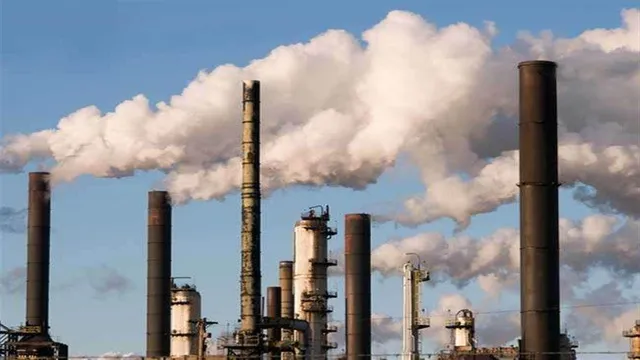- By Akansha Pandey
- Fri, 14 Nov 2025 11:33 AM (IST)
- Source:Jagran News Network
In a significant step to address rising pollution and energy consumption in India's steel industry, the environmental organisation iFOREST has released the country's first steel sector-based ESG (Environmental, Social, and Governance) performance report.
Alongside the report, the organisation also introduced an integrated Greenhouse Gas (GHG) accounting and verification framework and a specialised BRSR (Business Responsibility and Sustainability Report) addendum for the sector to promote more transparent and credible reporting.
The documents were released at the 'Green Steel Transition' event in New Delhi, organised in collaboration with the Indian Steel Association.
The Urgency: Steel Sector Pollution
The iron and steel industry has become India's fastest greenhouse gas-emitting sector.
It contributes approximately 12 per cent to the country's total carbon dioxide emissions.
This contribution is projected to double by 2030.
India's steel production was 140 million tonnes in 2023 and is projected to reach 255 million tonnes by 2030 and 500 million tonnes by 2050.
Adopting low-carbon technology is therefore essential for India's economic goals and its net-zero mission.
Three Major Reports Released
- ESG Performance Report of the Steel Sector (2023–24)
- BRSR Addendum to Strengthen ESG Reporting
- Integrated GHG Accounting and Measurement-Verification Framework
Chandra Bhushan, CEO of iFOREST, stated that India needs large-scale financial support for its climate goals, which requires credible, comparable, and verified reporting. He said the new framework will make emissions data more reliable and increase investor confidence.
📢 Our event 'India's Green Steel Transition - Benchmarking ESG Performance & Strengthening Disclosure' is underway.
— iFOREST (@iForestGlobal) November 13, 2025
In his welcome address, CEO, iFOREST, @Bh_Chandra says:
"India needs trillions of dollars of climate finance with the kind of mitigation and adaptation targets.… pic.twitter.com/04FUX67kY3
Key Findings Of The ESG Report
The report analysed 31 companies that filed BRSR reports, which produced 93 million tonnes of steel in the 2023-24 financial year (accounting for 65 per cent of India's total crude steel production). These companies had a total revenue of Rs 10.81 trillion and employed over 542,000 people.
Energy Consumption And Emissions
Average Energy Consumption: 23.2 giga joules per tonne, which is higher than the global average.
Renewable Energy: Use is less than 0.5 per cent of total energy consumption.
Total Emissions: The sector emitted 221 million tonnes of carbon-equivalent in 2023-24.
Emission Intensity: 2.54 tonnes per tonne of steel, significantly higher than the global average of 1.92 tonnes.
Water And Waste Management
Water Scarcity: Half of the sector's water usage occurs in areas facing water scarcity.
Waste Recycling: While 93 per cent of steel waste is recycled, the reporting on major waste like slag is not clear.
Data Discrepancies: Discrepancies were found in air pollution-related data.
Social And Governance Indicators
Workforce: 95 per cent male, with 56 per cent of employees on contract.
Women's Participation: 18 per cent on boards, but only 7 per cent in senior positions.
Anti-Corruption: Only 16 of the 31 companies have implemented an anti-corruption mechanism.
Need for Better Reporting The study found that reporting by large companies is better, while smaller companies use limited and varied methods. iFOREST Director Sanjayav Kanchan emphasised that sector-specific reporting frameworks are crucial for emission-intensive sectors to ensure information is comparable and credible.
India's First Integrated GHG Accounting Tool
Previously, steel companies used different international methodologies, making data comparison difficult. iFOREST has now developed an India-specific, Excel-based emission accounting and verification tool.
This tool will:
- Record all direct and indirect emissions (Scope 1, 2, and 3).
- Use India's specific emission factors.
- Include emissions from methane, nitrous oxide, and mining activities.
Be useful for all types of steel industries (small, medium, and large) and aims to accelerate the country's transition towards green steel.

